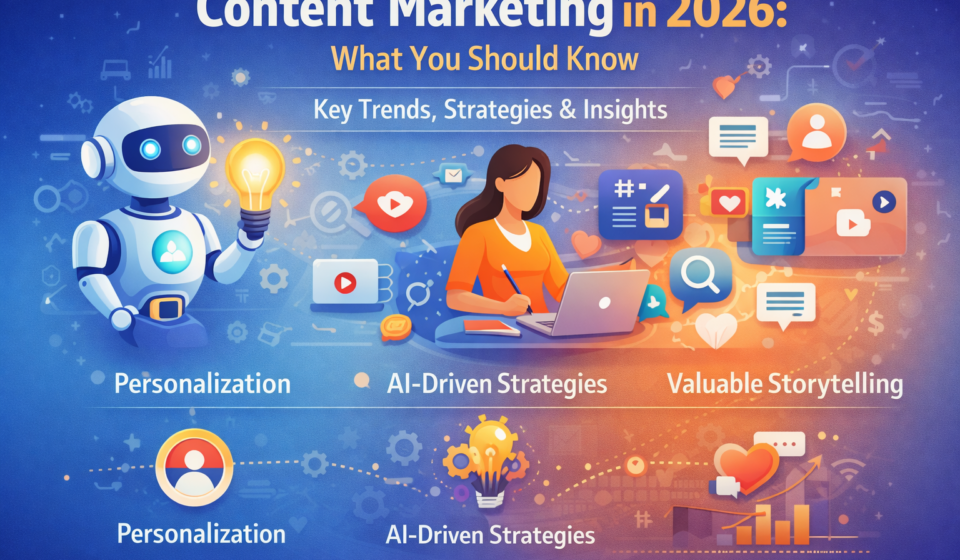
Content Marketing in 2026: What You Should Know
Introduction to Content Marketing in 2026
Content marketing has evolved significantly over the years, becoming a fundamental strategy that brands utilize to connect with their target audiences in an increasingly digital-first world. In 2026, content marketing is expected to continue its trajectory of innovation, adaptation, and complexity, driven by technological advancements and changing consumer behaviors. The landscape of content marketing has shifted from simply creating promotional materials to building meaningful relationships through valuable and engaging content.
Table Of Content
As we move deeper into 2026, brands must recognize the importance of integrating content marketing into their overall marketing strategies. This integration enables businesses to not only promote their products or services but also to inform, entertain, and engage consumers on multiple platforms. Today’s consumers are more discerning than ever; they seek authenticity and relevance in the content they encounter. Thus, brands that prioritize tailored content have a competitive edge in capturing attention and fostering loyalty.
Moreover, advancements in technology will play a pivotal role in shaping content marketing strategies. The rise of artificial intelligence, data analytics, and immersive experiences such as virtual reality and augmented reality will empower marketers to create more personalized and impactful content. These tools enable brands to understand their audience better, anticipate their needs and preferences, and deliver content that resonates on a deeper level.
In 2026, the ongoing proliferation of social media platforms will further alter the content marketing landscape. With new platforms emerging and existing ones evolving, brands must remain agile and responsive, adapting their content strategies to suit these environments. Understanding platform-specific best practices will be crucial for achieving meaningful engagement and driving conversion.
Ultimately, as we look forward to 2026, it is vital for brands to recognize that content marketing is not merely an option; it is an essential component for achieving long-term success in today’s digital environment.
Key Trends Shaping Content Marketing in 2026
As we approach 2026, several pivotal trends are expected to reshape the landscape of content marketing significantly. One of the defining influences will be the rise of AI-generated content. Advancements in natural language processing and machine learning are enabling marketers to leverage AI tools that can create content at an unprecedented scale and speed. This not only streamlines content production but also allows for a more diverse array of formats, ranging from compelling blog posts to engaging social media updates. However, while AI can enhance efficiency, marketers must balance automation with authentic storytelling to resonate with audiences genuinely.
Another trend gaining traction is the use of immersive technologies, particularly Augmented Reality (AR) and Virtual Reality (VR). These technologies enable brands to create interactive experiences that captivate users in ways traditional content cannot. For instance, a retail brand might utilize AR to allow customers to visualize how a piece of furniture would look in their homes before making a purchase. Content marketers should explore these immersive options to enhance user engagement and deliver memorable experiences that foster brand loyalty.
An increased focus on personalization is also anticipated to shape content marketing in profound ways. Consumers are increasingly expecting brands to understand their preferences and deliver tailored experiences. This necessitates sophisticated data collection and analytics strategies to gather insights about audience behavior. Marketers should strive to create personalized content that speaks directly to individual consumers, thereby increasing relevance and driving higher engagement rates. This could involve dynamic content on websites, segmented email marketing campaigns, or customized recommendations based on user activity.
The Role of AI and Automation
Artificial Intelligence (AI) and automation are increasingly becoming integrated into the fabric of content marketing, driving profound changes across content creation, distribution, and analytics. The rise of these technologies has made it possible for marketers to enhance their strategies, streamline operations, and improve audience engagement. The introduction of AI-powered tools has revolutionized the way content is personalized, allowing for a seamless connection with target audiences.
One of the key benefits of leveraging AI in content marketing is its ability to analyze vast amounts of data rapidly and accurately. This capability enables marketers to obtain insights into audience behavior, preferences, and trends, allowing for more targeted content delivery. Personalization has never been more crucial, as consumers demand content that resonates with their specific needs. With AI, marketers can create tailored content experiences that enhance user engagement and increase conversion rates.
Furthermore, automated writing tools have emerged as game-changers in the content creation process. These tools utilize AI algorithms to generate written content, providing marketers with the ability to produce articles, blog posts, and social media updates efficiently. While human oversight remains essential to ensure quality and creativity, automation assists in handling repetitive tasks, enabling content teams to focus on strategic initiatives. This efficiency not only saves time but also reduces costs, making it easier for businesses to scale their content marketing efforts.
Automation also plays a significant role in improving audience targeting. Marketers can streamline their outreach by automating email marketing campaigns, social media posts, and paid advertising efforts. This ensures that relevant content reaches the right consumers at the optimal time, increasing the likelihood of engagement. Overall, the integration of AI and automation in content marketing fosters an efficient workflow, empowering marketers to refine their strategies and achieve better results.
Content Formats to Watch Out For
As we look towards 2026, content marketing is set to evolve significantly, ushering in a variety of engaging content formats that are likely to capture audience attention. Among the most anticipated trends are short-form video, podcasts, interactive content, and live streaming. These formats are not only appealing to consumers, but they also facilitate effective brand communication, showcasing products and services in innovative ways.
Short-form video has gained traction in recent years due to platforms like TikTok and Instagram Reels, which emphasize quick, digestible content. These snippets can encapsulate messaging in mere seconds, making them particularly attractive to marketers aiming to deliver concise information. In 2026, we can expect brands to leverage this format more extensively, utilizing engaging visuals and storytelling that resonate with audiences, thus enhancing engagement.
Another significant format that will likely gain momentum is podcasts. The popularity of this audio medium has soared, providing brands with an opportunity to create deeper connections with their audience through storytelling and discussions. As consumers increasingly seek out on-the-go content, integrating podcasts into content marketing strategies will allow brands to reach listeners during their daily routines, helping to cultivate brand loyalty.
Moreover, interactive content, such as quizzes, polls, and augmented reality experiences, is anticipated to flourish. This type of content fosters active participation from users, enhancing the chances of content sharing and creating a memorable brand experience. Similarly, live streaming offers a unique platform for brands to engage audiences in real time, enabling immediate feedback and interaction, which can strengthen community ties and customer trust.
As marketers prepare for the future, understanding and incorporating these emerging content formats into their strategies will be crucial. By staying ahead of these trends, brands can effectively connect with their target audience and enhance their overall content marketing efforts.
Importance of SEO in 2026
As we approach 2026, the significance of Search Engine Optimization (SEO) remains paramount for content marketers aiming to enhance their digital presence. The landscape of SEO is rapidly evolving, driven by advancements in search engine algorithms designed to improve user experience and the accuracy of information retrieval. In this dynamic environment, understanding and adapting to these changes will be crucial for successfully reaching target audiences.
The algorithms of major search engines are becoming increasingly sophisticated, focusing on user intent rather than merely keyword matching. As a result, content marketers must shift their emphasis toward creating high-quality, relevant content that aligns with user needs and expectations. This approach not only helps in generating organic traffic but also improves engagement, making it essential to fine-tune strategies according to the evolving criteria set by search engines.
Another notable trend shaping SEO in 2026 is the rise of voice search, spurred by the proliferation of smart speakers and voice-enabled devices. This innovation has altered the way users phrase their search queries, leading to the need for content that answers questions in a conversational tone. Marketers should optimize their content for natural language processing (NLP) to ensure visibility in voice search results, utilizing structured data and featured snippets to attract attention.
Moreover, optimizing for user experience will become a fundamental aspect of effective SEO strategies. Factors such as website load speed, mobile responsiveness, and user-friendly navigation significantly influence search rankings. By prioritizing these elements, content marketers can enhance user satisfaction while also meeting search engine criteria.
In summary, as SEO continues to evolve in 2026, content marketers must remain vigilant and adaptable. By understanding and responding to the changes in search engine algorithms, voice search preferences, and user experience expectations, marketers can maintain their competitive edge and achieve sustainable organic growth.
Building a Community Through Content
In the evolving landscape of content marketing, building a community around a brand is becoming increasingly significant. Brands that successfully cultivate a loyal following create a platform for engaged users, encouraging genuine interactions and fostering long-term relationships. By emphasizing community-building strategies in content marketing efforts, businesses can enhance audience retention and brand loyalty.
One effective approach to building a community is by encouraging user-generated content (UGC). UGC not only provides brands with authentic material that resonates with their audience but also allows customers to feel valued and appreciated. When users contribute their own content, such as testimonials, reviews, or social media posts, they become active participants in the brand’s narrative. This interaction not only strengthens the ties between customers and the brand but also amplifies the brand’s reach through shared content across various platforms.
Additionally, hosting interactive events such as webinars, Q&A sessions, or community forums can significantly enhance community engagement. These events offer opportunities for audience members to voice their opinions, ask questions, and contribute to discussions. By facilitating open communication, brands can better understand their audience’s needs, paving the way for tailored content that addresses specific interests or concerns. Moreover, creating dedicated social media groups or forums can further serve as platforms for community dialogue, enabling members to share experiences, advice, and insights.
The impact of establishing a loyal community extends beyond increased engagement; it also enhances customer loyalty. Members of a community are more likely to advocate for a brand, share promotions, and drive referrals. When customers feel a sense of belonging and connection to a brand, they become more invested in its success. Therefore, integrating community-building practices into content marketing strategies is not only beneficial but essential for any brand aiming for longevity and success in 2026 and beyond.
Measuring Content Marketing Success
In the rapidly evolving landscape of content marketing in 2026, measuring success has become imperative for marketers looking to optimize their strategies and achieve measurable results. Key performance indicators (KPIs) serve as essential metrics for evaluating the effectiveness of content marketing efforts. Metrics such as website traffic, engagement rates, and social media interactions provide insights into how well content resonates with the target audience. Furthermore, advanced analytical tools will empower marketers to track user behavior, allowing for a more nuanced understanding of content performance.
Conversion rates remain a cornerstone metric of success in assessing content marketing impact. The ability to convert users from engagement to action, whether it be a subscription, purchase, or other call-to-action, is a critical factor that indicates content efficacy. Monitoring these rates helps identify which types of content drive the most conversions, facilitating informed decisions about future marketing initiatives. In 2026, leveraging AI-driven analytics tools will further enhance conversion tracking, providing real-time insights that enable marketers to adapt strategies promptly.
Return on investment (ROI) is another vital indicator of content marketing success. Determining the financial impact of content initiatives requires a comprehensive analysis of costs associated with production and distribution against revenue generated through lead generation and customer acquisition. Marketers will increasingly rely on integrated analytics platforms that consolidate performance data across multiple channels, allowing for a holistic assessment of ROI. Such tools also aid in forecasting and refining budgets to maximize content output.
Ultimately, optimizing content marketing strategies based on data insights is crucial. By continuously analyzing performance metrics in relation to set objectives, marketers can adjust their content to better align with audience preferences and market trends. The ability to pivot strategies based on analytical findings will set successful content marketers apart in 2026.
Ethics and Regulations in Content Marketing
As we look ahead to 2026, the landscape of content marketing will be significantly influenced by evolving ethical considerations and regulatory frameworks. With the increased emphasis on consumer data privacy, content marketers must navigate the complex environment of compliance and responsible data usage. New regulations, like the General Data Protection Regulation (GDPR) and the California Consumer Privacy Act (CCPA), have already set a precedent that requires brands to prioritize consumer consent and transparency when collecting and utilizing personal information.
In this context, transparency has emerged as a cornerstone of ethical content marketing. Marketers are encouraged to openly disclose the nature of their data collection practices, as well as how consumer information will be used. Failure to adhere to these standards can lead not only to legal repercussions but also to erosion of consumer trust. Therefore, it is essential for marketers to implement clear messaging about their data policies, ensuring that consumers are well-informed and have the ability to make conscious choices about their engagement with various brands.
Furthermore, with the expected increase in global legislation aimed at regulating digital advertising and content marketing, understanding regional variations will be critical for marketers operating in multiple jurisdictions. These laws often address issues such as honor-based marketing practices and targeting specific demographics. For marketers to thrive in this evolving regulatory landscape, they must cultivate ethical content strategies that not only comply with existing legislation but also anticipate emerging trends in consumer protection.
Ultimately, the intersection of ethics and regulations in content marketing will shape how brands engage their audiences. By embracing transparency and compliance, marketers will foster stronger connections with consumers while safeguarding their reputation. As the industry prepares for 2026, developing ethical content marketing practices will undoubtedly be a key differentiator for success.
Conclusion and Future Outlook
In reflecting upon the key aspects of content marketing explored throughout this blog post, it is evident that the landscape is undergoing significant transformation. As we look toward 2026 and beyond, several crucial trends and innovations will shape the future of content marketing. Marketers must remain vigilant in adapting to these changes to ensure their strategies remain relevant and effective.
Firstly, the rapid advancement of technology, including artificial intelligence and machine learning, is poised to redefine how content is created, distributed, and analyzed. These tools will allow marketers to gain deeper insights into consumer behavior, enabling the development of highly personalized content that resonates more deeply with audiences. Furthermore, as voice search and visual content continue to rise, adapting content strategies to meet these new consumption patterns will be imperative.
Moreover, the increasing emphasis on authenticity and transparency is likely to guide content marketing efforts in a more ethical direction. Consumers are becoming increasingly discerning, preferring brands that align with their values and demonstrate commitment to social responsibility. Therefore, companies must focus on creating genuine narratives that build trust and foster lasting relationships with their target market.
Finally, as we advance toward 2026, understanding the significance of data-driven decisions in content marketing will be paramount. Marketers should prioritize analytics to measure the impact of their efforts continually. This approach not only enhances the relevance of content but also ensures growth and engagement as audience needs evolve.
In conclusion, the future of content marketing demands innovation and adaptability. By embracing emerging technologies, prioritizing authenticity, and leveraging data insights, marketers can effectively navigate the evolving landscape, ensuring their strategies are both future-proof and impactful.
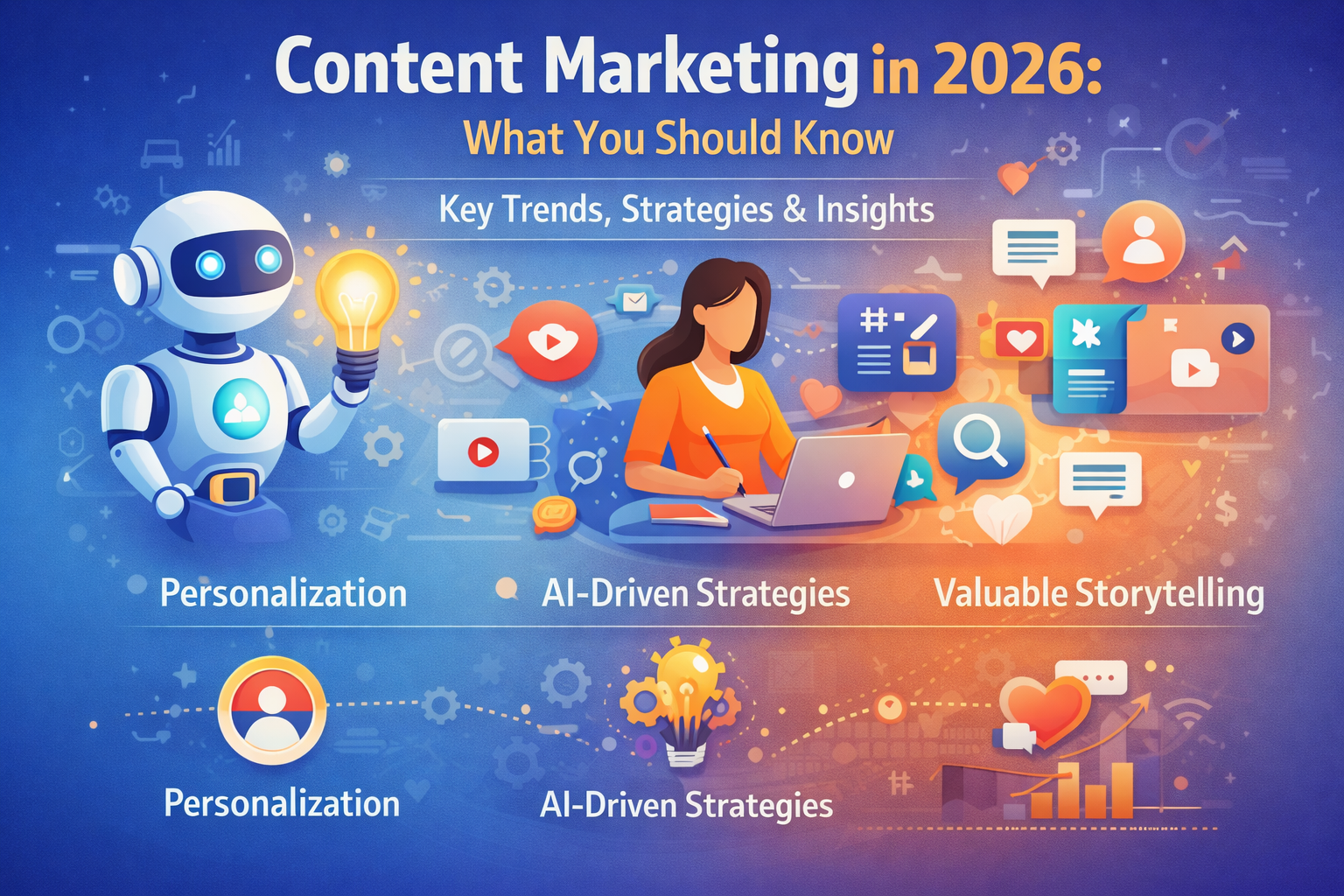
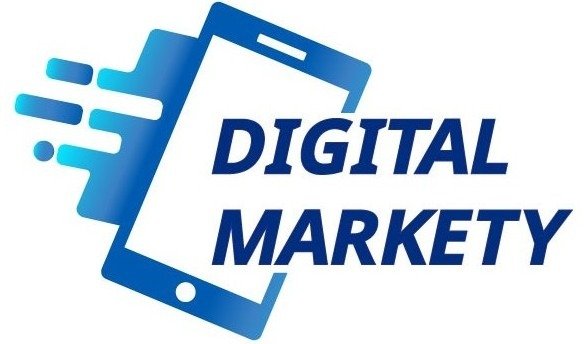
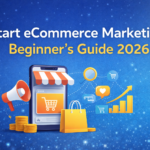

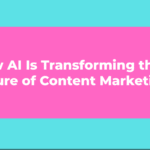
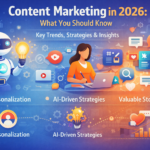
Finally someone explains social media strategy clearly